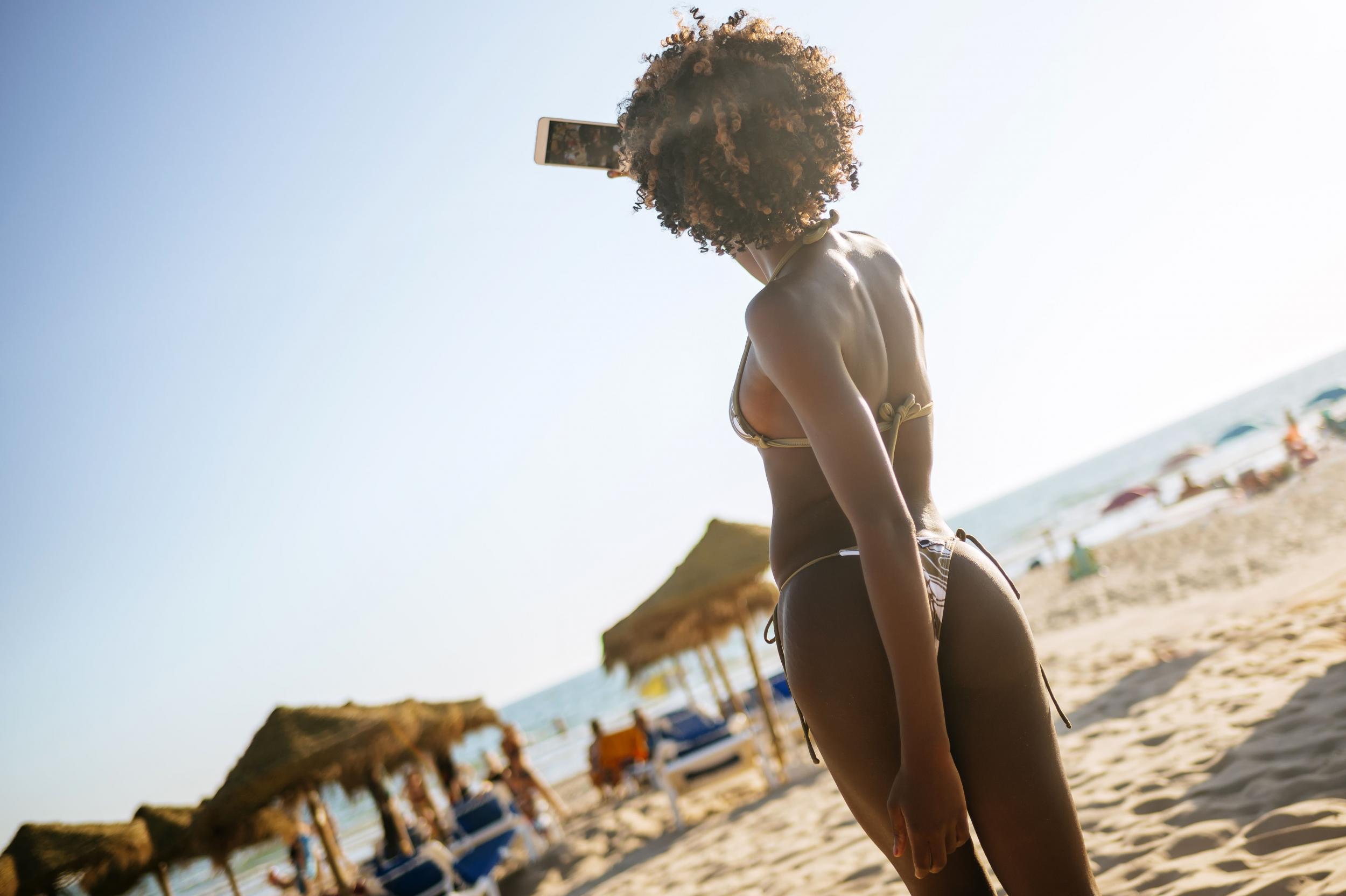Economic inequality, not gender oppression, drives women to take sexy selfies, says study
'When a young woman adjusts her bikini provocatively with her phone at the ready, don’t think of her as vacuous or as a victim. Think of her as a strategic player in a complex social and evolutionary game'

Your support helps us to tell the story
From reproductive rights to climate change to Big Tech, The Independent is on the ground when the story is developing. Whether it's investigating the financials of Elon Musk's pro-Trump PAC or producing our latest documentary, 'The A Word', which shines a light on the American women fighting for reproductive rights, we know how important it is to parse out the facts from the messaging.
At such a critical moment in US history, we need reporters on the ground. Your donation allows us to keep sending journalists to speak to both sides of the story.
The Independent is trusted by Americans across the entire political spectrum. And unlike many other quality news outlets, we choose not to lock Americans out of our reporting and analysis with paywalls. We believe quality journalism should be available to everyone, paid for by those who can afford it.
Your support makes all the difference.Economic inequality is more likely to drive women to sexualise themselves in selfies than an oppressively patriarchal society, according to a study involving photos from more than 100 countries.
Feeling comparatively poorer boosts competitiveness and status anxiety, compelling people on every rung of the social ladder to outperform their peers, according to researchers at the University of New South Wales (UNSW) in Sydney, who analysed tens of thousands of social media posts across 113 countries.
Lead author Dr Khandis Blake said her research team tracked posts where people had taken selfies and then noticed they were tagged “sexy“, “hot” or a similar word.
“We then looked at where in the world these things happened most,” said Dr Blake. “The number one way that psychologists usually look at women’s preoccupation with their appearance is that it happens because of patriarchal pressures – that women live in societies that value their appearance more than their other qualities”.
“The argument is usually that when you see sexualisation, you see disempowerment. What we found instead is that women are more likely to invest time and effort into posting sexy selfies online in places where economic inequality is rising, and not in places where men hold more societal power and gender inequality is rife.”
The findings of the study – published in Proceedings of the National Academy of Sciences of the USA – are consistent across varying territories. The research took into account and controlled for other factors that could have an impact on patterns, such as population size, human development and access to the internet.
Dr Blake said: “That income inequality is a big predictor of sexy selfies suggests that sexy selfies are a marker of social climbing among women that tracks economic incentives in the local environment.
“Rightly or wrongly, in today’s environment, looking sexy can generate large returns, economically, socially, and personally.”
The researchers discovered the exact same pattern in real-world spending in other appearance-enhancing areas.
Dr Blake said: “What we found in more than 1,000 different economic areas in the US when looking at women’s spending in beauty salons and clothing stores is that income inequality is also predicting this type of spending.”
The study’s researchers said the findings make sense from an evolutionary perspective – with Dr Blake arguing the agency and strategy behind women who take selfies must not be overlooked.
“In evolutionary terms, these kinds of behaviours are completely rational, even adaptive. The basic idea is that the way people compete for mates, and the things they do to put themselves at the top of the hierarchy are really important. This is where this research fits in – it’s all about how women are competing and why they’re competing,” she said.
“So, when a young woman adjusts her bikini provocatively with her phone at the ready, don’t think of her as vacuous or as a victim. Think of her as a strategic player in a complex social and evolutionary game. She’s out to maximise her lot in life, just like everyone.”
The study also found the association between economic inequality and sexualisation is stronger in developed countries.
“Our findings have important implications: sexualisation manifests in response to economic conditions but does not covary with female subordination,” says the report.
It argues that increased sexualisation is most prominent in societies which have made significant progress towards gender equality.
“Publicly displayed, sexualised depictions of women have proliferated, enabled by new communication technologies, including the internet and mobile devices,” it adds.
“These depictions are often claimed to be outcomes of a culture of gender inequality and female oppression, but, paradoxically, recent rises in sexualisation are most notable in societies that have made strong progress toward gender parity.”
The study analysed aggregate patterns in 68,562 sexualised self-portrait photographs – otherwise known as “sexy selfies” – shared publicly on Instagram and Twitter.
Join our commenting forum
Join thought-provoking conversations, follow other Independent readers and see their replies
Comments